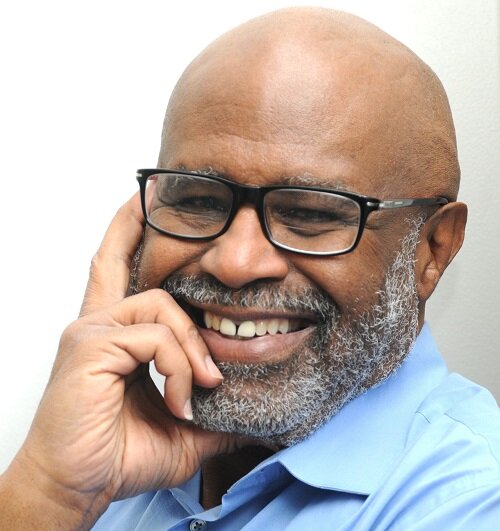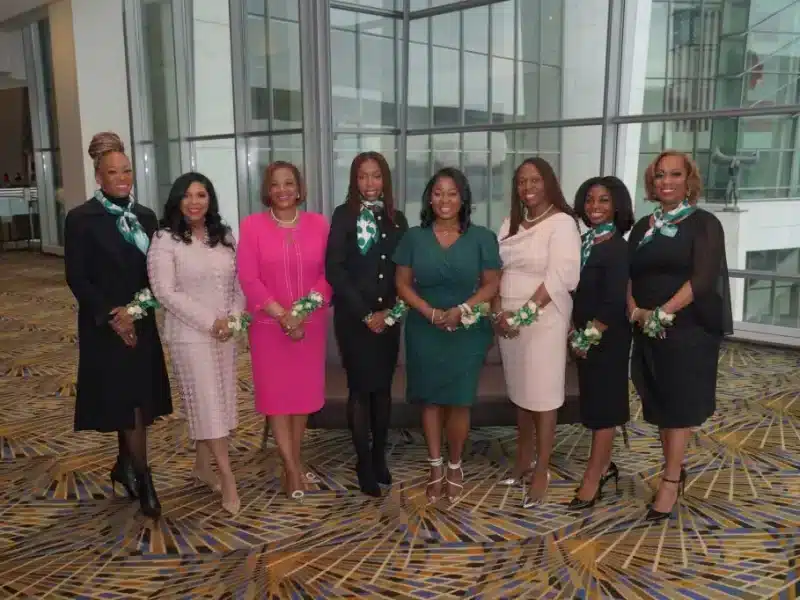Resilient Neighborhoods: Rev. Larry Simmons talks gardening and community-building in Brightmoor
The director of the Brightmoor Alliance talks about how youthful enthusiasm created a valuable source of fresh fruits and vegetables for local residents.
This is part of a series of Q&A interviews with Detroit nonprofit directors connected to our Resilient Neighborhoods series. Rev. Larry Simmons is the executive director of the Brightmoor Alliance.
Model D: First off, can you tell us a little about the Brightmoor Alliance?
Rev. Larry Simmons: The Brightmoor Alliance is an organization that was begun by the community in 2000 [and] incorporated in 2007. It was chosen by Skillman to

serve as the governance organization for the Skillman Good Neighborhoods initiative, which lasted from 2006 to 2016. There’s an elaborate vision statement, which can be found on our website. We’ve kind of boiled that down to say that the Brightmoor Alliance is about building abundant food, shelter, clothing, and hope.
And the way we do that is we serve as a connector. We like to connect to resources and community. We like to fill in the gap where services are missing and demonstrate to others ways that they can step in to build that food, shelter, clothing, and hope. And really even more than running and operating programs, our hope is to get something started and then we step back and let others run and then we fill up other gaps. The alliance helped start Neighbors Building Brightmoor. It helped start Sidewalk Detroit. It helped start an early childhood providers network.
We’ve helped generate 28 block clubs in the neighborhood, which have identified just over 200 partners who are into gardening and planting flowers in five neighborhoods over these 28 block clubs. Those are the kind of things we do. [Right now,] we’re doing the Brightmoor Wisdom Project, which is an effort to revisit our strategic plan of 2012 and to reconfirm and/or update that vision statement.
Model D: Could you tell us a little about the alliance’s gardening efforts in Brightmoor?
Rev. Simmons: As you know, the city of Detroit, in general, and Brightmoor, in particular, is a food desert, particularly with fresh fruits and vegetables. So we reached out to the community to see if there was a willingness and interest in our block club network to grow gardens that anyone in the neighborhood would have access to. Last year we had 29 community gardens.
This year we’ve got fourteen, a significant fall off. I think in part due to COVID, but I also due to the fact we were late getting going. But we do have 14 community gardens this year. And these gardens will be available to anyone in the neighborhood. The agreement that the community gardens make is that at least three days a week for eight hours a day that garden will be open for the community. Some of them are done on vacant lots. Some are being done on community property like [residents’] backyards. But they’re spread all over the Brightmoor. And the goal is to build up awareness that the community has the power to meet its own fresh vegetable needs, not completely, but in many ways.
And so, as we do with so many things in Brightmoor, we just stepped out and lo and behold, there was really a significant interest. We’ve had to learn how to live in the COVID space. So we’re already beginning to plan for ’23. The goal would be for next year to double the number and take it back to our original 29 vegetable gardens and then to double that to 60. But we’ll start working on that now, talking to people and doing the work necessary to make it happen.
Model D: How did the alliance first get started doing this kind of work?
Rev. Simmons: You know it’s funny, because I was really not a big garden fan at first. I remember having a discussion with Riet Schumack, who was one of the founders of Neighbors Building Brightmoor. I would say to her, “You know the reason my folks left the South is we did not want to be out growing food and digging in the dirt.” And she laughed and said, “But there’s much to be gotten from it.” I was completely unmoved, let me say, but I observed her work with the young people and the pride that they took [in their gardening work].
So one year, with our summer youth employment program that was funded by the Fisher Foundation, we offered the young people the opportunity to plant a garden. They were geeked. They were all down with it. They planted a garden behind my church. We didn’t call it a community garden at that point, but it was open to anybody who wanted to harvest the vegetables. We grew greens, squash, string beans, and peppers. It was really quite impressive. They had a coach, my brother. He and his wife were avid gardeners. And he brought some of his friends and they helped coach them. And they grew this phenomenal garden. And I remember one of my really really street kids would come and bring his friends and point to the garden and say, “I did that.” They named the garden and painted signs. And he would come by and just point out to his friends that this was what he had done.
We also built a prayer park and planted with a group of Chinese landscape architects at the corner of Burt Road and Outer Drive and they planted flowers in that garden. If you drive along [that area], you’ll see this bird, which is actually a dove and flower lilies, sculpted out of metal. That’s an outgrowth of the kids’ commitment to this garden. So what got me into it was their enthusiasm. And as a result of their enthusiasm, we pitched it to the larger community and there were people who were enthusiastic.
Model D: What can you tell us about the alliance’s role in these gardening efforts?
Rev. Simmons: What’s great about it is: It’s not led by me. The community actually plans this. I help raise money. I help fill the gap. I connect with the resources. I raise the money. But they do the work. We provide staff. If there are things that they need that the community doesn’t have, then staff either provides it or identifies it and we go find a partner somewhere who can help with it.
Model D: How effective have the gardens been in providing supplemental access to food for residents?
Rev. Simmons: We didn’t ask people how many folks actually accessed our garden. But the two I know best are — one’s behind my church. On Wednesdays, we have a food distribution where we share our lot with Mount Vernon, the church next door. And I can tell you, many people would come to our garden to take greens or get tomatoes, and I think we had peppers last year. So did it solve the problem of the food desert? No. But it did help to get people access to fresh fruits and vegetables.
And I know that the Brown Street block club, they had a couple of gardens out in the field and they have a lot of the community come stop by. I had one lady, in fact, she would come and pick dinner for her family out of the garden behind our church. She said, “if it wasn’t for this garden, she doesn’t know what her family would have done about getting fresh food.” And she came back to help take care of it later. So that’s a wonderful thing to see. We tend to have a certain disposition and attitude about people who are poor. But, if you treat people with respect and give them the opportunity to take care of themselves, in almost every instance, they’ll do it.
Model D: Any advice for others around Detroit who’d like to do this sort of gardening work in their communities?
Rev. Simmons: I would say, it’s easier to get people started, If you start with starter plants. Next year, we are going to attempt to start with seeds. Seeds are way cheaper. And we’re going to try to do perennials. You know the difference between annuals and perennials? Annuals, you have to plant every year. Next year we’re going to work hard at building out the community gardens. Our goal is to have a community garden on every block in Brightmoor, where there’s a person in. It might take us a few years to get to that number, but for our first three years, we were doubling every year.
This is my advice. One, call the community together and listen to them. Don’t try to do this as a do-gooder project where you’re going to beautify the neighborhood. No. Call the community together and ask them: Is this something you want done? I this something you want to do? if the answer you get is “yes” and they want to do the work. Then there are lots of partners out here who are really into greenery: Greening of Detroit, the ERB foundation, and lots of private donors.
That’s my advice: check with the community, put together your plan, reach out to other friends. Feel free to call me. I’ll be glad to share whatever supporters I have. I’m not trying to hog them for myself. We’re all trying to make Detroit the best place it can be. And I’m sure whoever will be reading this probably has community development organizations in their neighborhood. Give them a call. This is something we’re really interested in doing.
Anything else you want our readers to know?
Rev. Simmons: I would just say, I know it is a tough time. The shooting in Buffalo reminds us of tough times. The too frequent notices we get in the news about young people being shot in drive-bys. But there really is a spirit of rejuvenation moving in our city. And I invite and encourage everybody to join us. We’re going to overcome all of that. negativity. We’re going to beat it. And, if you read this article, I invite you to come join us. Get in! The water is fine!
This interview has been edited for length and clarity.
Resilient Neighborhoods is a reporting and engagement series that examines how Detroit residents and community development organizations are working together to strengthen local neighborhoods. It’s made possible with funding from the Kresge Foundation.








